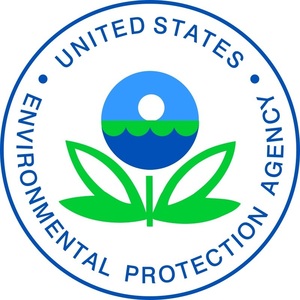EPA issues final rule to extend RFS compliance deadlines

March 24, 2021
BY Erin Krueger
The U.S. EPA on March 23 published a final rule extending the Renewable Fuel Standard compliance and attest engagement report deadlines for 2020. The attest engagement report deadline for 2021 was also extended, along with the 2019 compliance and attest engagement report deadlines for small refiners.
Under the rule, obligated parties must submit 2020 compliance documentation by Jan. 31, 2022, and the associated attest engagement reports by June 1, 2022. The original 2020 RFS compliance deadline would have been March 31, 2021.
The rule is effective as of March 24. The agency explained that this is necessary because pending litigation in the U.S. Supreme Court makes it necessary for the rule to take effect prior to March 31, 2020, to ensure regulated entities do not begin complying with removed regulatory obligations.
Advertisement
Advertisement
The Supreme Court is currently reviewing a ruling handed down by the Tenth Circuit Court of Appeals in January 2020 that struck down three small refinery exemptions (SREs) that the court said were improperly issued by the EPA and held that the agency cannot “extend” exemptions to any small refineries whose earlier, temporary exemptions had lapsed. Oral arguments in that case are scheduled for April 27.
The agency also extended the deadline for obligated parties to submit attest engagement reports for the 2021 compliance year to Sept. 1, 2022. The deadline for obligated parties to submit compliance documentation for 2021 is unchanged.
The EPA said that extension is necessary because of the agency’s delay in promulgating the 2021 RFS renewable volume obligations (RVOs) and the corresponding impact on compliance decisions.
For small refineries, the rule extends the regulatory deadline to comply with 2019 RFS obligations from March 31, 2020, to Nov. 20, 2021. The agency said that extension is necessary because the litigation pending before the Supreme Court is expected to resolve legal questions regarding some refineries’ eligibility to receive annual exemptions from their 2019 regulatory obligations.
Advertisement
Advertisement
Growth Energy expressed disappointment with the 2020 RVO compliance deadline extension. “We are disappointed in EPA’s decision to accept the refiners’ request to extend the deadline for their blending requirements for 2020,” said Emily Skor, CEO of Growth Energy. “Refiners using COVID-19 as a pretext to attack the Renewable Fuel Standard is wrong, as biofuel producers were among the hardest hit by COVID-19, with over half the industry offline at the peak of the crisis.
“The intent of the RFS is to blend more biofuels into our nation’s transportation fuel supply. It is not meant to have oil companies use questionable tactics to avoid blending biofuels and then demanding that the agency further delay compliance. These refineries have had ample time to blend more biofuels and comply with the RFS. We urge EPA to move expeditiously to finalize the 2021 and 2022 RVO, as well as restore the 500 million gallons that have been pending since 2017.”
Additional information is available on the EPA website.
Related Stories
The U.S. EPA on July 8 hosted virtual public hearing to gather input on the agency’s recently released proposed rule to set 2026 and 2027 RFS RVOs. Members of the biofuel industry were among those to offer testimony during the event.
The USDA’s Risk Management Agency is implementing multiple changes to the Camelina pilot insurance program for the 2026 and succeeding crop years. The changes will expand coverage options and provide greater flexibility for producers.
EcoCeres Inc. has signed a multi-year agreement to supply British Airways with sustainable aviation fuel (SAF). The fuel will be produced from 100% waste-based biomass feedstock, such as used cooking oil (UCO).
President Trump on July 4 signed the “One Big Beautiful Bill Act.” The legislation extends and updates the 45Z credit and revives a tax credit benefiting small biodiesel producers but repeals several other bioenergy-related tax incentives.
CARB on June 27 announced amendments to the state’s LCFS regulations will take effect beginning on July 1. The amended regulations were approved by the agency in November 2024, but implementation was delayed due to regulatory clarity issues.
Upcoming Events










